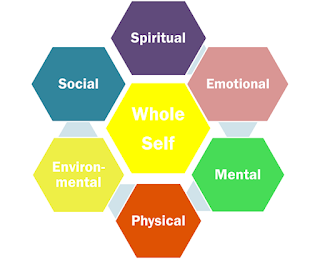We live in a fast-paced world where many people feel overwhelmed by stress. Balancing work, relationships, and personal goals can often take a toll on our mental and emotional well-being. This is where holistic counseling comes into play. Unlike traditional counseling approaches that focus solely on the mind, holistic counseling takes a more comprehensive approach, considering the interconnectedness of the mind, body, and spirit. To shed light on why holistic counseling has become an increasingly popular choice for those seeking a holistic approach to mental health, we will explore the principles and benefits of holistic counseling.
Holistic counseling is rooted in the belief that every individual is a unique entity consisting of various interconnected parts. It recognizes that mental and emotional well-being cannot be isolated from physical health and spiritual alignment. Rather than treating symptoms in isolation, holistic counseling aims to address the underlying causes of distress and promote overall wellness.
The Principles of Holistic Counseling:
1. Mind-Body Connection: Holistic counseling recognizes the intricate relationship between the mind and body. It acknowledges that mental and emotional states can affect physical health and vice versa. By understanding this connection, holistic counselors incorporate various techniques such as mindfulness, meditation, and body-centered practices to promote healing.
2. Individuality: Each person's journey towards well-being is unique. Holistic counseling embraces this individuality, focusing on personalized treatment plans tailored to meet the specific needs of each client. Through a collaborative approach, holistic counselors empower individuals to actively participate in their healing process.
3. Holistic Assessment: In holistic counseling, the focus extends beyond symptoms to explore the individual as a whole. Holistic counselors consider various factors, including lifestyle, diet, relationships, and spiritual practices, to gain a comprehensive understanding of the client's well-being. This comprehensive assessment helps identify imbalances and develop a holistic treatment plan.
Benefits of Holistic Counseling:1. Holistic Approach: By addressing the mind, body, and spirit, holistic counseling offers a more complete approach to healing. It encourages individuals to explore their emotions, thoughts, and physical sensations, leading to a deeper understanding of themselves and their overall well-being.
2. Empowerment: Holistic counseling empowers individuals to take an active role in their healing journey. By providing tools and techniques to manage stress, anxiety, and other challenges, individuals gain a sense of control over their mental and emotional health.
3. Preventive Care: Holistic counseling emphasizes prevention rather than solely focusing on treating symptoms. By identifying and addressing imbalances early on, individuals can potentially prevent the development of more severe mental health issues.
A holistic approach to mental and emotional well-being offers a unique perspective. By recognizing the interconnectedness of mind, body, and spirit, holistic counselors help people find balance and harmony. Whether you are seeking stress relief, personal growth, or a deeper understanding of yourself, holistic counseling may be the path to a healthier and happier you. Embrace the power of holistic counseling and embark on a journey of holistic healing today.
https://linktr.ee/amberhighland






No comments:
Post a Comment